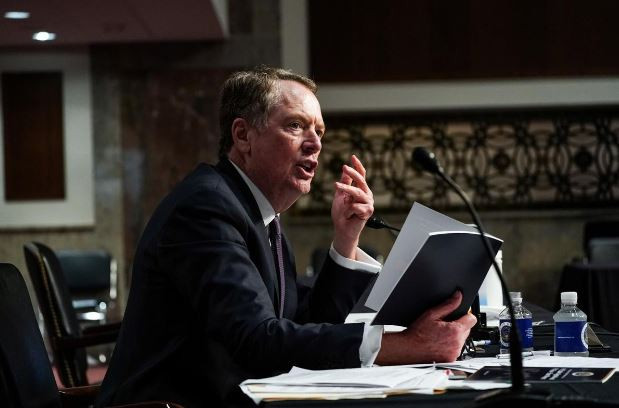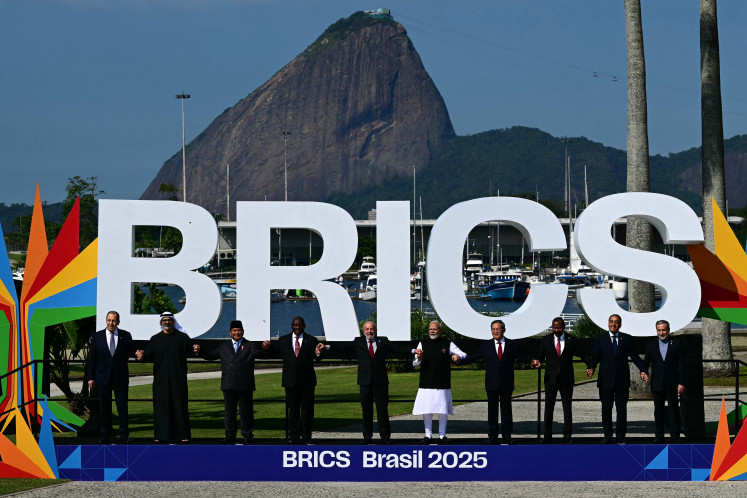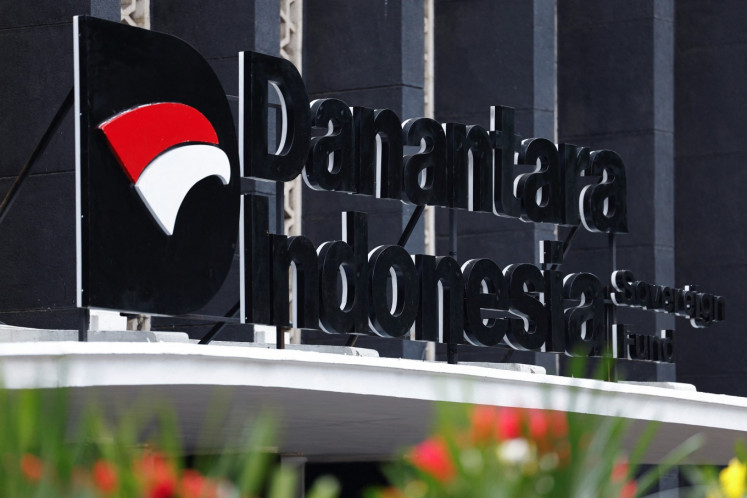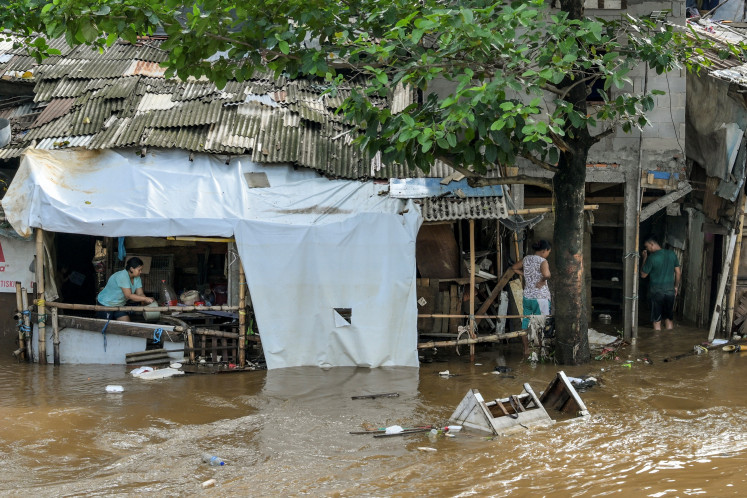Popular Reads
Top Results
Can't find what you're looking for?
View all search resultsPopular Reads
Top Results
Can't find what you're looking for?
View all search resultsTrade without aid: Will it work for Indonesia?
Indonesia’s new development status could raise a question on whether Indonesia is eligible to receive preferential treatment under GSP schemes.
Change text size
Gift Premium Articles
to Anyone
T
rade is a powerful engine for economic growth and poverty reduction, but harnessing its power may be difficult for developing and least-developed countries. Most of them face a range of supply-side and trade-related constraints that hinder their ability to engage and compete effectively in international trade.
To address this issue, the World Trade Organization (WTO) launched the Aid-for-Trade initiative in 2005 to assist developing and least-developed countries to maximize the benefits from trade opportunities, and integrate into the multilateral trading system. In general, most of Aid-for-Trade is disbursed bilaterally by donors, or through multilateral and regional finance and development organizations such as the World Bank.
Indonesia’s new income status has the potential to affect the country’s eligibility to receive trade aid and preferential treatment. On July 1, 2020, the World Bank upgraded Indonesia’s economic status from a lower-middle-income to an upper-middle-income economy, a step further toward reaching the high-income category.
The new status was conferred based on the country’s increased gross national income (GNI) per capita, which rose from US$3,840 in 2018 to $4,050 (the lowest rung in that category) in 2019. GNI as the sole benchmark of the World Bank’s income classification refers to all the income earned by a country's residents, businesses and earnings. It represents the value produced by a country’s economy in a given year, regardless of the source of the value.
The World Bank’s income groups consist of the following classifications: (1) Low-income economies (a GNI per capita below $1,035), (2) lower middle-income (a GNI per capita between $1,036 and $4,045), (3) upper middle-income economies (a GNI per capita between $4,046 and $12,535) and (4) high-income economies (a GNI per capita of $12,536 or above).
The upper-middle income status is expected to further strengthen investors’ and trading partners’ perception of Indonesia’s economic security and investment climate. However, the new status may pose certain challenges in the form of reduced international assistance and support, including the eligibility to benefit from special and differential treatment. In fact, the upgraded status is likely to lead to the termination of certain trade benefits such as preferential tariff reductions provided under the Generalized System of Preference (GSP) program.
The GSP is a system whereby developed or high-income countries offer non-reciprocal preferential treatment for products originating in developing or least-developed countries. Such developed or high-income countries will unilaterally determine the eligible beneficiaries and products to be included in their schemes. Under the WTO rules, the preferential treatment provided under a GSP scheme is justified under the Enabling Clause, officially called the Decision on Differential and More Favorable Treatment, Reciprocity and Fuller Participation of Developing Countries.
Since 2011, Indonesia has been one of 120 countries benefitting from the United States’ GSP scheme. Nonetheless, in the past few years, the US has several times threatened to remove Indonesia from its GSP list. On April 12, 2018, the US Trade Representative (USTR) confirmed that it would review Indonesia’s GSP eligibility due to its concerns about Indonesia’s compliance with GSP market access, services and investment criteria. The USTR also alleged that Indonesia had applied various trade and investment barriers that had a negative effect on US trade.
Indonesia’s new development status could raise a question on whether Indonesia is eligible to receive preferential treatment under GSP schemes. The Handbook of US GSP states that country graduation, or the removal of a country’s GSP eligibility may be caused by a beneficiary developing country’s advances in economic development and trade competitiveness. For instance, on May 17, 2019, the US terminated Turkey’s designation as a beneficiary developing country following a finding that the country was economically developed and thus, “should no longer benefit from preferential access to the US market”. Turkey was classified as an upper-middle income country from 2003 up until 2020.
Indonesia also benefits from trade preferences granted by the European Union’s Standard GSP, through which approximately 30 percent of total imports from Indonesia enjoy lower duties. The GSP may be revoked if the country has similar or a better type of preferential access to the EU market through, among other things, trade agreements, or if it has achieved a high or upper-middle income economic status during three consecutive years. China, Ecuador, the Maldives and Thailand are examples of upper-middle income economies in 2011, 2012 and 2013 that were excluded from the EU’s GSP on Jan. 1, 2015.
With a step forward in escaping the middle-income category, trading partners could likely treat Indonesia as no longer a developing country. WTO definitions of “developed” and “developing” countries are currently unavailable, and thus, members announce for themselves into which category they fall. Other WTO members can challenge their claim. For instance, on Feb. 10, 2020, prior to Indonesia’s new income status, the US officially removed Indonesia from the list of developing countries under its countervailing duty laws.
Consequently, Indonesia will no longer receive special and differential treatment available in the WTO Agreement on Subsidies and Countervailing Measures, such as the de minimis subsidy threshold of 2 percent, and negligible import volumes criteria for the imposition of anti-subsidy or countervailing duty tariffs. If other countries follow the steps of the US, preferential treatment under WTO Agreements and trade support will be limited for Indonesia.
It is important to note that it is still possible for Indonesia to fall back into a lower income category in 2021, due to economic impact caused by the COVID-19 pandemic this year. Economies that moved into a lower category this year include Algeria, which moved from an upper-middle income to a lower-middle income economy, and Sudan, which moved from a lower-middle income to a low income economy.
To anticipate the withdrawal of trade support in the future, Indonesia needs to improve the competitiveness of its products in the global market, prepare for structural reform post-COVID-19 pandemic to speed up recovery, increase the competitiveness of human capital and industry productivity, as well as take advantage of the digital economy.
***
Alya Mahira is a junior lawyer at FratiniVergano and Michelle Limenta is law lecturer at Prasetiya Mulia University (UPH) and director of UPH Center for International Trade and Investment. The views expressed are their own.










